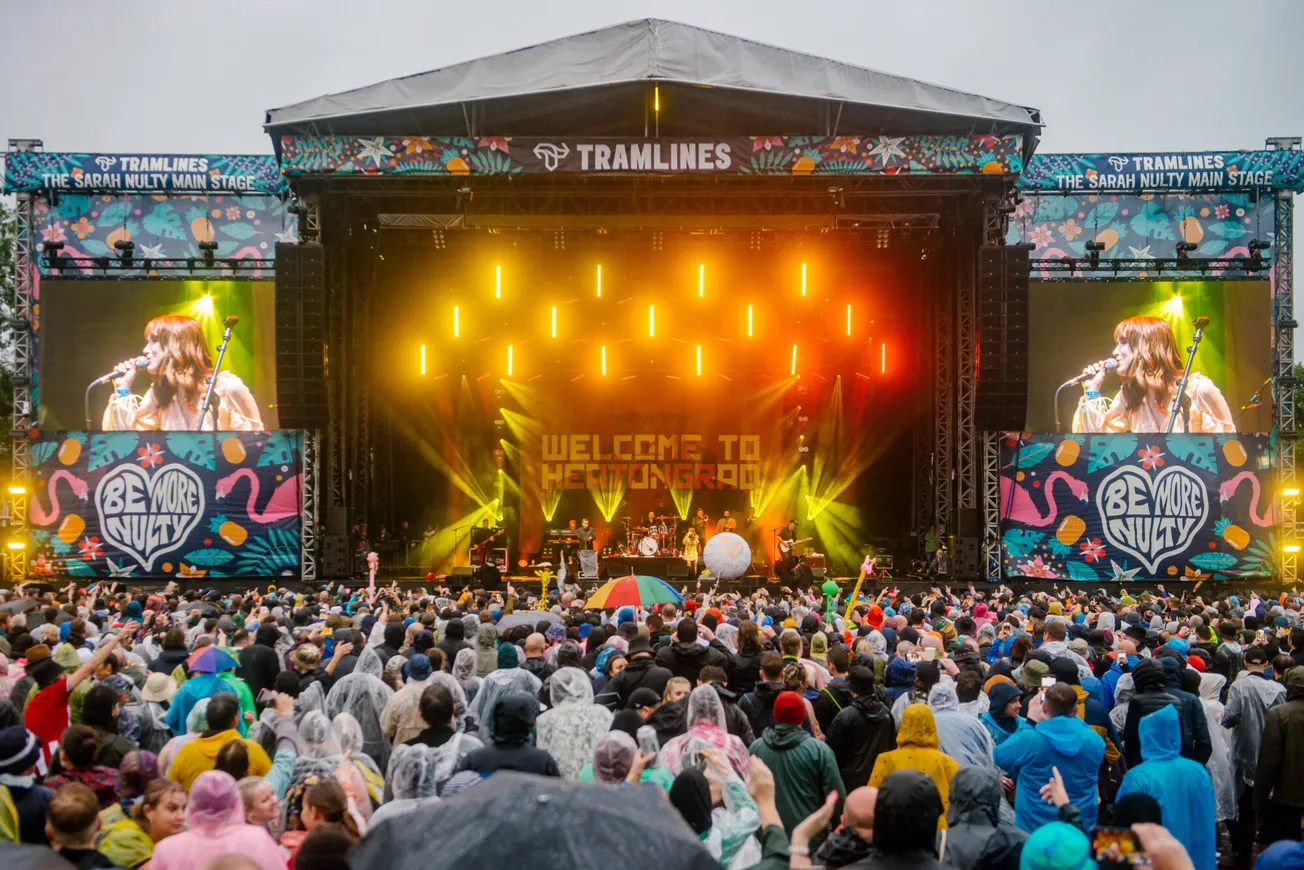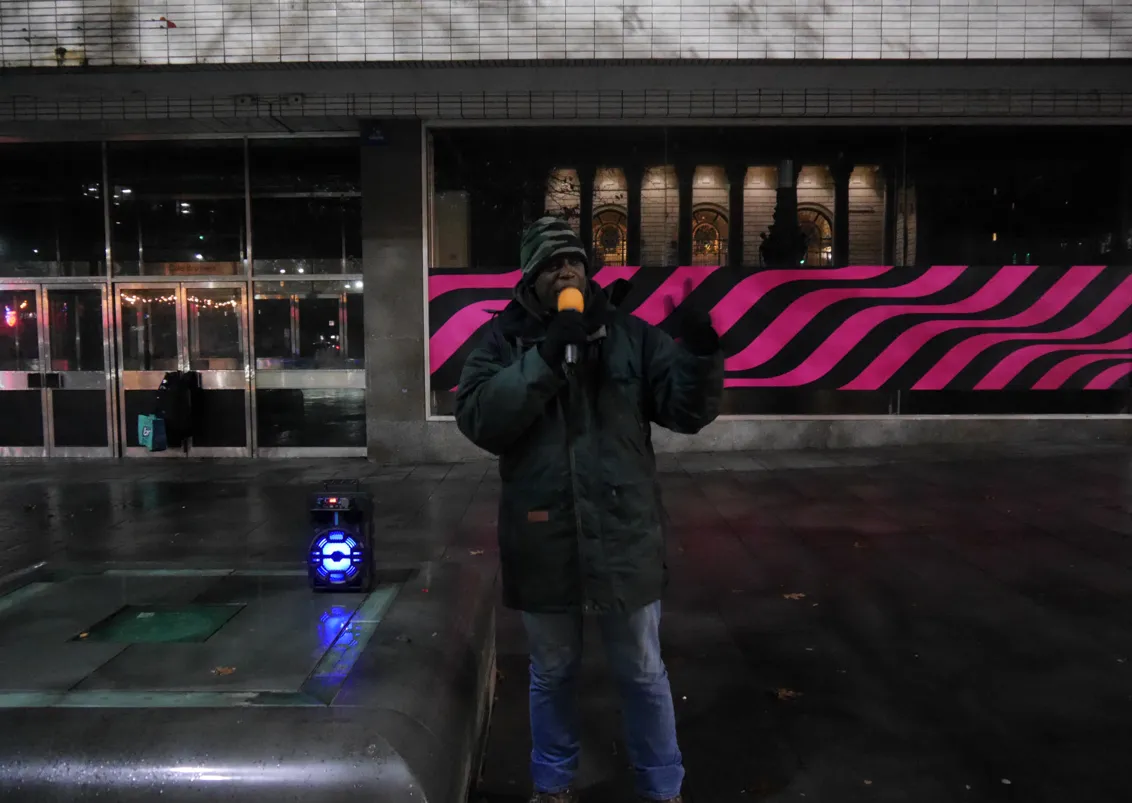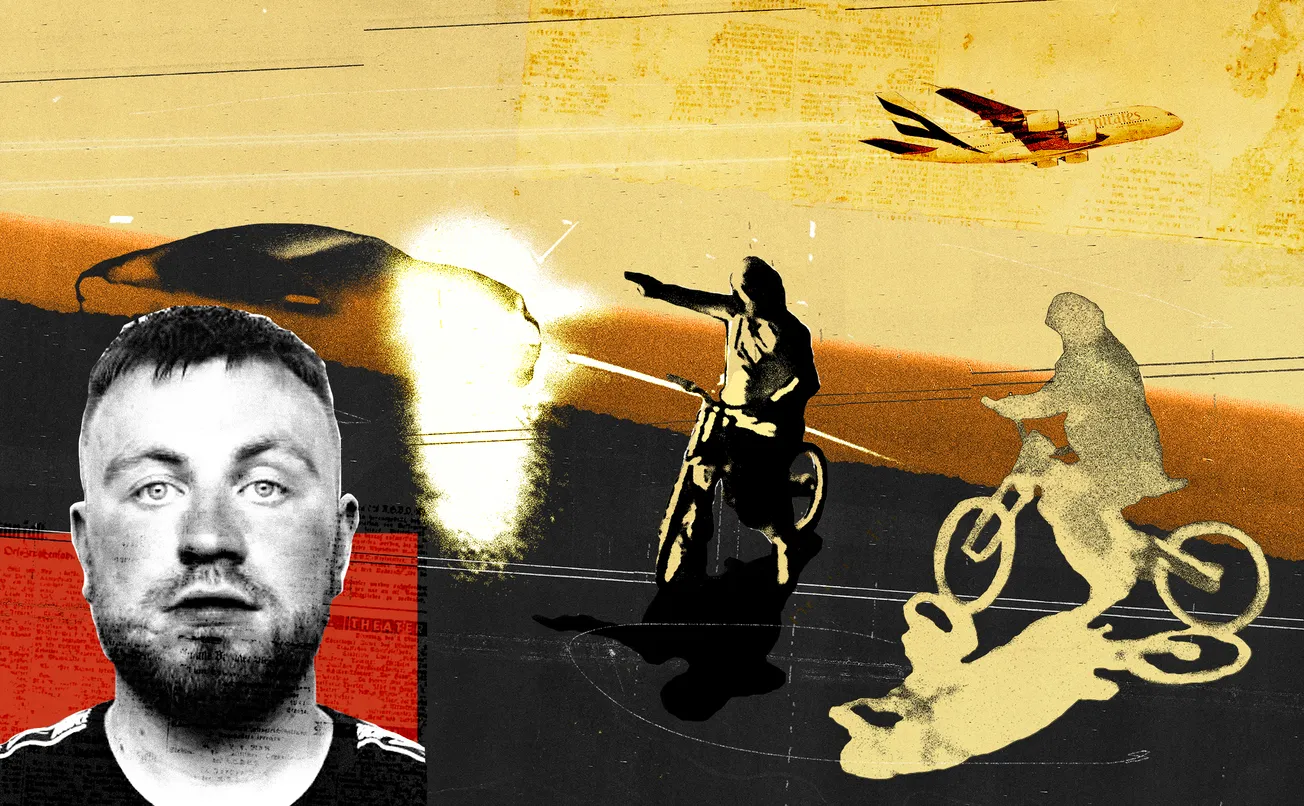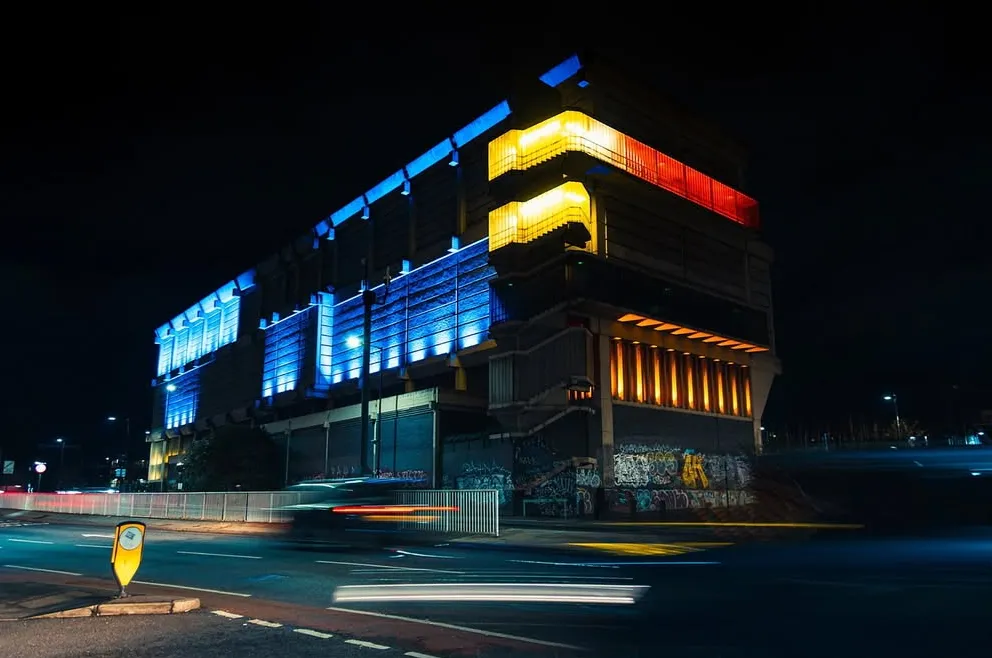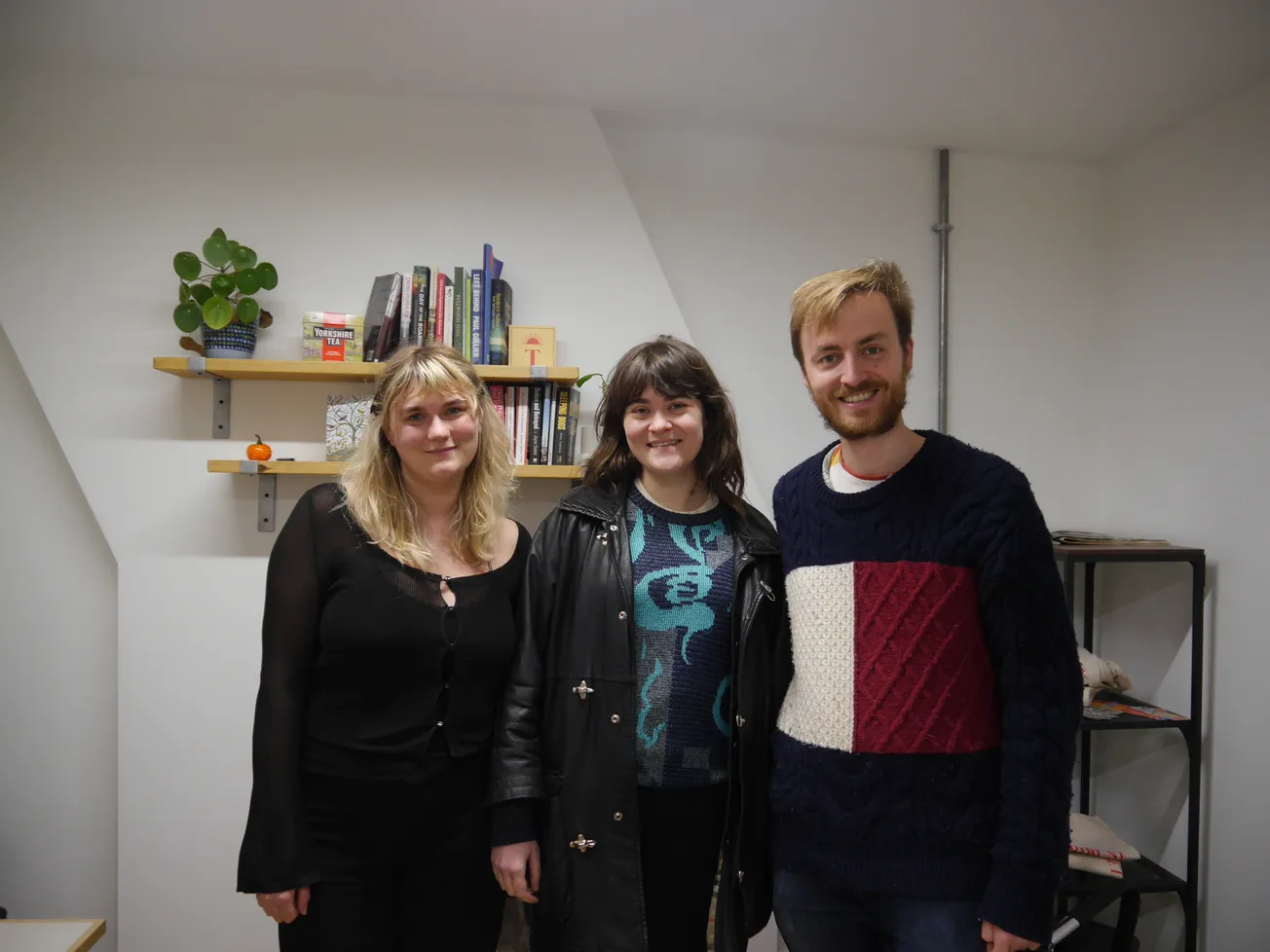Top line: Tramlines have issued a statement distancing themselves from their owner KKR over “unethical” investments. KKR, who bought the festival last year, are alleged to have invested in Israeli military operations and settlements, prompting calls for artists to boycott festivals owned by the same firm including Field Day in London and Sónar in Barcelona.
Who owns Tramlines? The festival is a very different beast from the free city-centre event it once was. In 2020, Tramlines was sold to Superstruct, the second-largest festival promoter in the world, which owns more than 85 festivals in Europe and Australia. As well as Tramlines, Superstruct owns more than half a dozen festivals in the UK including Y Not, Bluedot, Victorious, Boardmasters, NASS, South West Four, Truck, and Kendall Calling.
Then, in 2024, Superstruct was itself sold to US private equity and investment giant KKR for a reported £1.1 billion. KKR is headquartered in New York and has investments worth an estimated $710 billion. A piece in the Guardian says that KKR is a major investor in the German media company Axel Springer, which “runs ads for developments in the occupied territories on Israel’s Yad2 classified ad site, owned by Springer”. They have also invested in Israeli data and tech firms, some of which are alleged to have military applications.
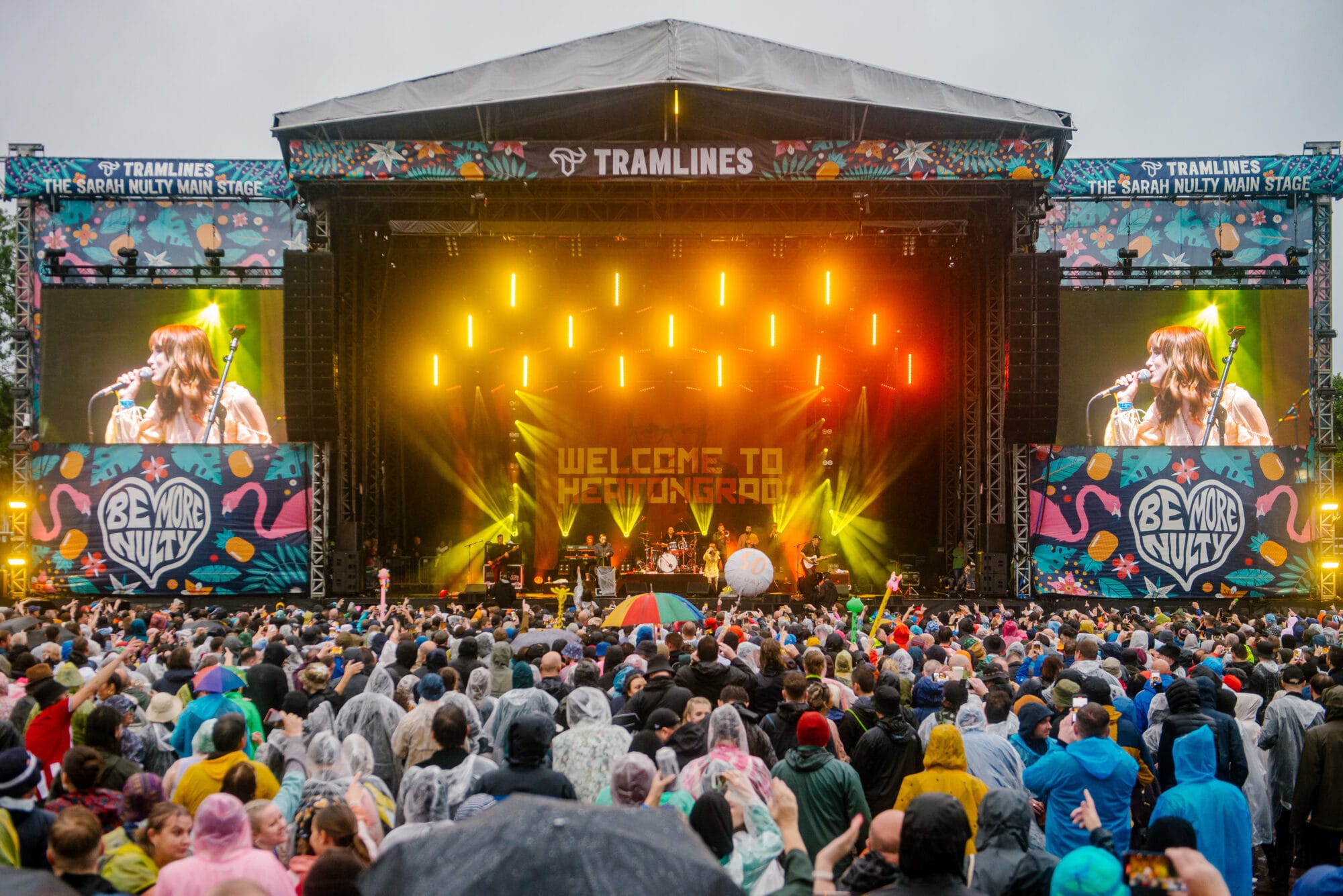
Having a Field Day: When KKR’s ownership of the London festival Field Day was revealed, a dozen artists left the festival. This came after an open letter signed by 200 artists including Brian Eno and Robert Del Naja from Massive Attack called on the festival to distance itself from the investment firm. After a lot of noise, the festival issued a statement saying they had “no knowledge or influence” in KKR’s investment in Superstruct and that they were “passionately opposed to KKR’s unethical investments in Israel”.
Meanwhile in Sheffield: Despite Tramlines being in the same position, the reaction here has been much more muted. In fact, though murmurs were happening behind the scenes, no-one was really speaking publicly about it.
“We wanted you to hear about this from us first”: That is, until we asked Tramlines on Tuesday about how they felt about KKR’s activities. The next day, they published a statement about the issue on their website and social media channels, saying “We wanted you to hear about this from us first.”
However, a source close to the festival alleged to us that the organisers had hoped this wouldn’t come to light, suggesting it wasn’t purely a coincidence that they only went public after we got in touch.
What have Tramlines said? “The Tramlines Team” said they run the festival independently and make their own creative and commercial decisions. They added they only “recently found out” about the allegedly unethical investments and wanted to make it clear they were “directly in opposition to our ethos, aims and values”. They continued:
While we have no control over the decisions made by outside investors in Superstruct, we will continue to use our platform to make our position heard and understood… It is important for us to be clear about where your money goes when you buy a ticket for Tramlines. We can absolutely reassure you that your ticket pays for the festival and artists you love, the incredible staff and freelancers who put on the show every year and our Tramlines Trust community initiatives here in Sheffield. If there’s a profit, it remains entirely within Superstruct, for the development of their festivals and nothing else.
That last point is doubtful. It would be surprising for a multinational private equity company to pay £1.1bn for Superstruct just to invest in the UK music scene. From the point of view of KKR, “development of their festivals” is likely to mean increasing Superstruct profits in order to earn a return on their investment.
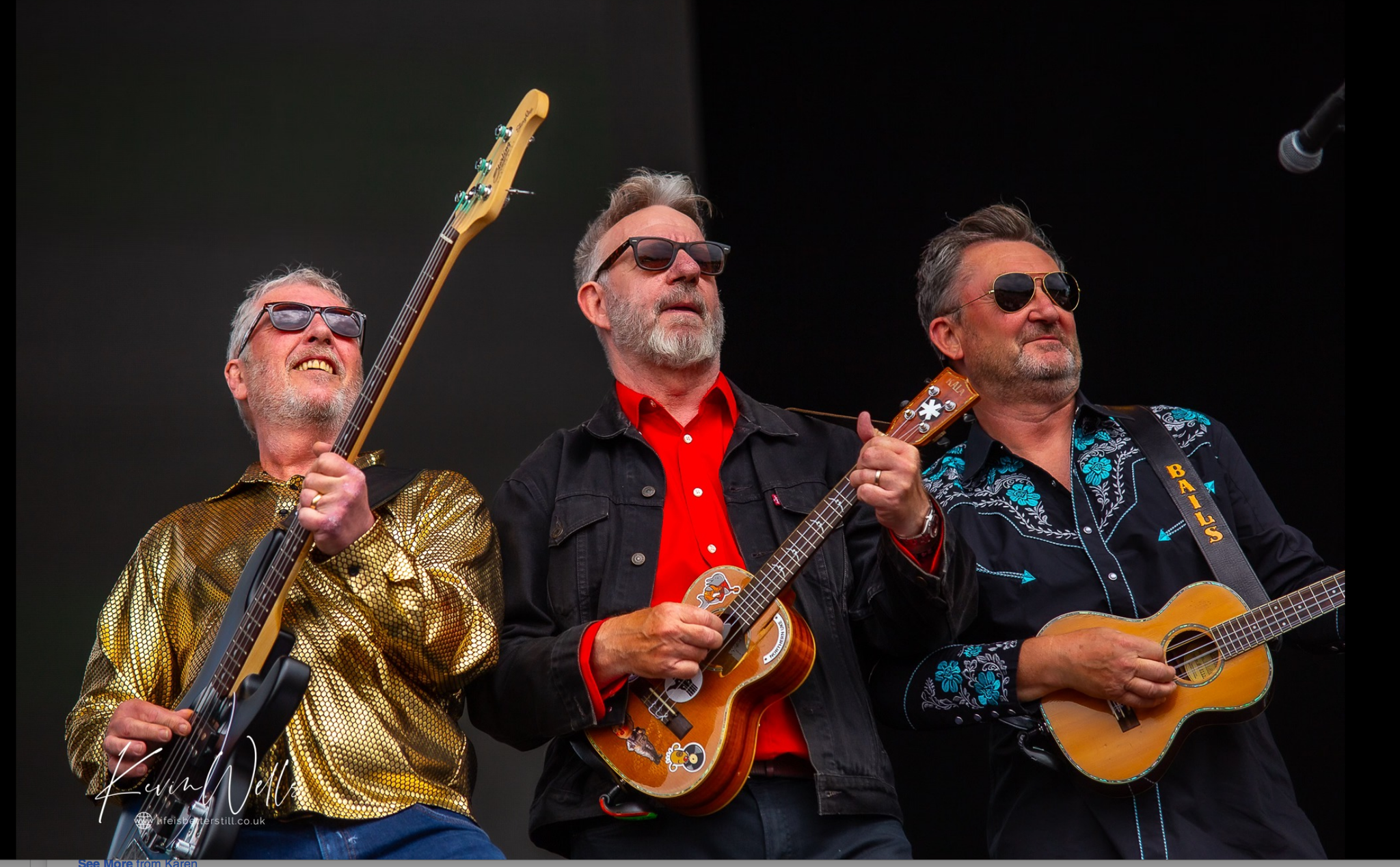
What are artists saying? Very little. The Tribune has contacted dozens of artists including headliners Pulp, The Reytons and Kasabian. The only artists who responded by the time of publication were Sheffield’s Everly Pregnant Brothers, who issued the following statement:
The Everly Pregnant Brothers are disheartened to learn of the ties to Tramlines owners Superstruct and their parent company KKR to the illegal occupation of the West Bank and its complicity in the ongoing conflict, through KKR’s ownership and investments in Israeli companies. We understand the nature of involuntary complicity on behalf of Tramlines and its owner, however it’s imperative the actions of those who are directly complicit, in this case KKR, are called out. At this time we refer to the Palestinian coalition Boycott, Divestment and Sanctions (BDS) movement and feel we are happy to play Tramlines under their guidelines. Fans have paid good money to enjoy the Tramlines festival and we want the festival to continue and hopefully this issue will be fully dealt with for future Tramlines.
Absolute beginners: The first Tramlines took place in 2009. The idea behind the original free, city centre festival was to create something like the Camden Crawl in London or Dot to Dot in Nottingham, where different venues join forces to host a series of gigs under the same banner. “Initially it was an idea to give the bars a shot in the arm in the summer to get them through until the students came back,” said co-founder James O’Hara in a 2019 interview to mark Tramlines’ 10th anniversary.
Alan Deadman, who was involved with the festival from the beginning and still runs the Devonshire Green stage at the Tramlines Fringe, says there was “a lot of unhappiness” when the festival left the city centre for Hillsborough Park in 2018. At the time legendary Sheffield DJ Winston Hazell said he feared that the festival could be sold to a private investor. When Superstruct bought the festival from its founders in 2020, James O’Hara said they paid them a “change your life” sum of money, but exactly how much has never been revealed.
“All sorts of bad things come out of the woodwork”: “It’s a great shame that something that started as a free festival has ended up being a plaything of hedge funds and global capitalists,” says Deadman over the row over KKR. “When you get up to the level of major investors, all sorts of bad things come out of the woodwork.”
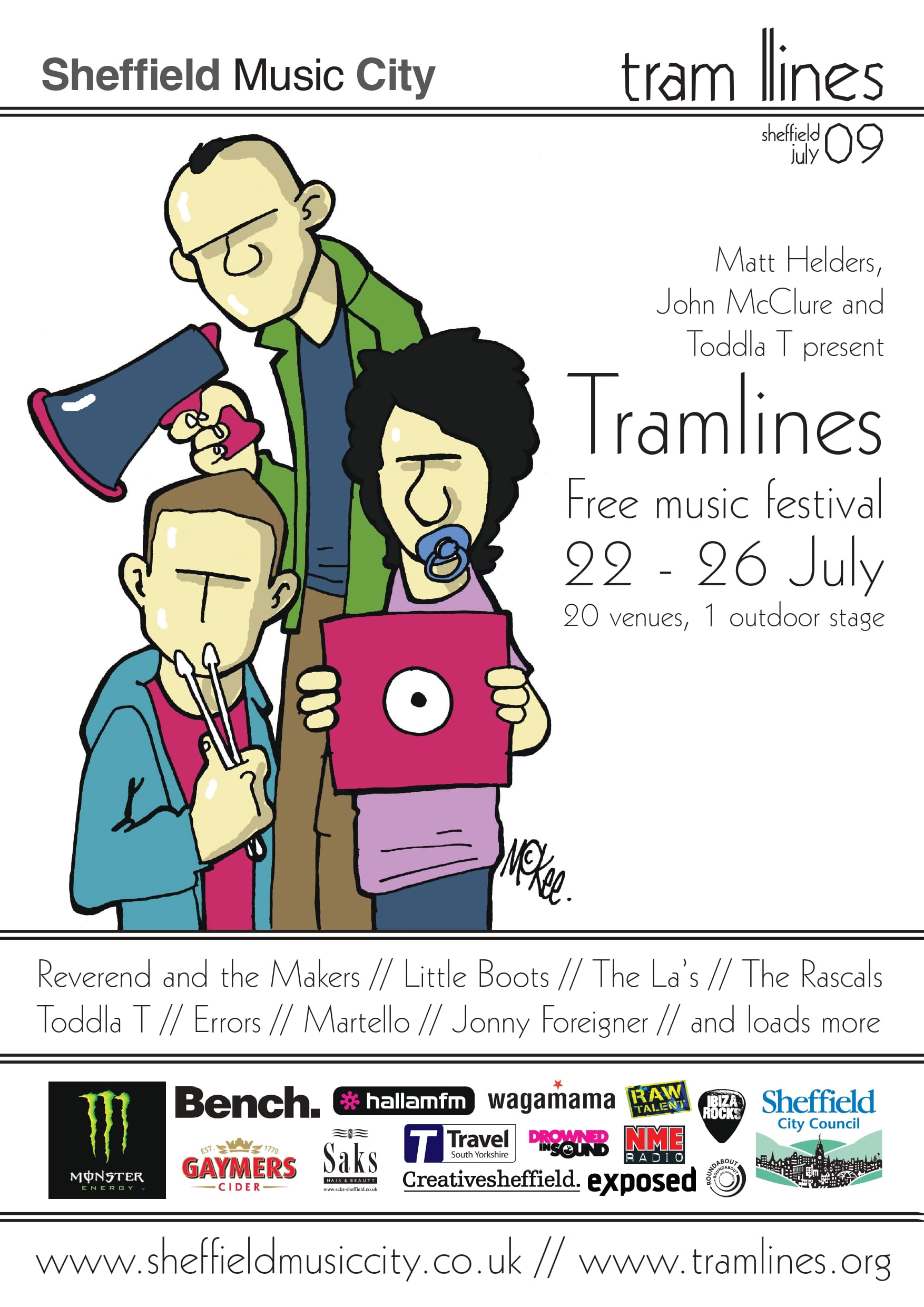
However, he cautioned against throwing the baby out with the bathwater and boycotting the festival. “It’s grown hugely and that’s been really good for Sheffield,” he says. “I still think we need to keep hold of that whatever happens.” Deadman says that this year he was given £2,000 from the Sarah Nulty Power of Music Foundation (a charity linked to the festival) to put on a music event in Sheffield General Cemetery. “Tramlines is a good model of how to run a festival,” he adds. “They’re also really supportive of the Fringe, which has turned into a brilliant thing for the city.”
Fan feeling: Judging by the reaction of fans to the Instagram post, most are supportive of how Tramlines have handled the issue. “Love the transparency! ❤️ Thank you for speaking out. Well said,” said one. “Thanks for the openness” added another. But not everyone was so impressed. “Great that you've finally acknowledged this (I've been asking you to for weeks) but I'm not sure your statement goes far enough… Words are easy. What are you going to actually DO?” said one.
Bottom line: It’s two months to go until the festival, and if organisers were hoping the links to KKR wouldn’t come to public attention then they’ll be disappointed. But whether festivalgoers and artists are concerned about what Tramlines’ ultimate owner gets up to (when it’s not buying up festivals) remains to be seen.


